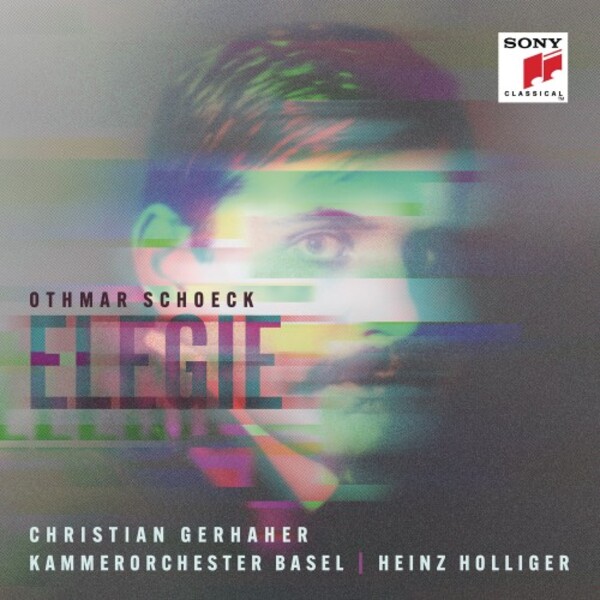SCHOECK Elegy Op 36 (Christian Gerhaher)
View record and artist detailsRecord and Artist Details
Genre:
Vocal
Label: Sony Classical
Magazine Review Date: 06/2022
Media Format: CD or Download
Media Runtime: 58
Mastering:
DDD
Catalogue Number: 19439 96330-2

Tracks:
| Composition | Artist Credit |
|---|---|
| Elegie |
Othmar Schoeck, Composer
Basel Chamber Orchestra Christian Gerhaher, Baritone Heinz Holliger, Conductor |
Author: Hugo Shirley
Othmar Schoeck wrote over 400 songs, and Elegie (1921‑22) is arguably his finest achievement in the genre. Like so many of his songs, it draws on poetry of the German Romantics (three quarters of its 24 songs set Lenau, the rest Eichendorff), but Elegie is unusual in many ways, not least for accompanying the singer with a small ensemble: strings, piano, flute, oboe (doubling cor anglais), clarinet (doubling bass clarinet), horn, timpani and tam-tam.
Schoeck uses this ensemble with economy and ingenuity, and limits himself in terms of colour and mood; the majority of the songs are modest in length, coming in around the two and a half-minute mark. He weaves together his material – a small number of winding motifs serve as uniting threads – to create a memorable sound world with distant echoes of Tristan (unmistakable in the sixth song, ‘Zweifelnder Wunsch’) and defined by a quiet autumnal melancholy, a sense of emotional energy largely spent. It’s a superb, quietly compelling work that culminates, after so much resignation, in the moving consolation of the beautiful final song, ‘Der Einsame’.
This new recording from Christian Gerhaher is most welcome, joining Andreas Schmidt’s superb CPO account in the catalogue – a couple of older recordings seem to be long unavailable. What’s immediately striking about Gerhaher’s performance is its intimacy, the reticence of his delivery, which at times almost approaches Sprechgesang. It’s a performance that underlines the work’s modernity, its hazy, disquieting sound world, the protagonist’s emotional exhaustion and sense of resignation. The baritone’s approach is very effectively contrasted with the vividness of the playing of the Basel Kammerorchester under Heinz Holliger, who are particularly superb in the descriptive details that Schoeck occasionally introduces – the distant thunder in ‘Warnung und Wunsch’ or the jittery energy of the first ‘Waldlied’.
There’s inevitably an enormous amount to admire in Gerhaher’s reading, and he’s superb in conveying the quietly obsessive power of ‘Vesper’ or ‘Herbstgefühl’, for example. Elsewhere, I was less convinced by the way that he lets phrases almost peter out and drains the voice of colour, often preferring Schmidt’s more traditionally and beautifully sung performance.
That said, there’s never any doubting the intelligence and coherence of Gerhaher’s interpretation, which is never less than compelling on its own terms. All in all, this is a most welcome addition to the catalogue, which will no doubt help find new audiences for this wonderful cycle.
Discover the world's largest classical music catalogue with Presto Music.

Gramophone Digital Club
- Digital Edition
- Digital Archive
- Reviews Database
- Full website access
From £8.75 / month
Subscribe
Gramophone Full Club
- Print Edition
- Digital Edition
- Digital Archive
- Reviews Database
- Full website access
From £11.00 / month
Subscribe
If you are a library, university or other organisation that would be interested in an institutional subscription to Gramophone please click here for further information.




